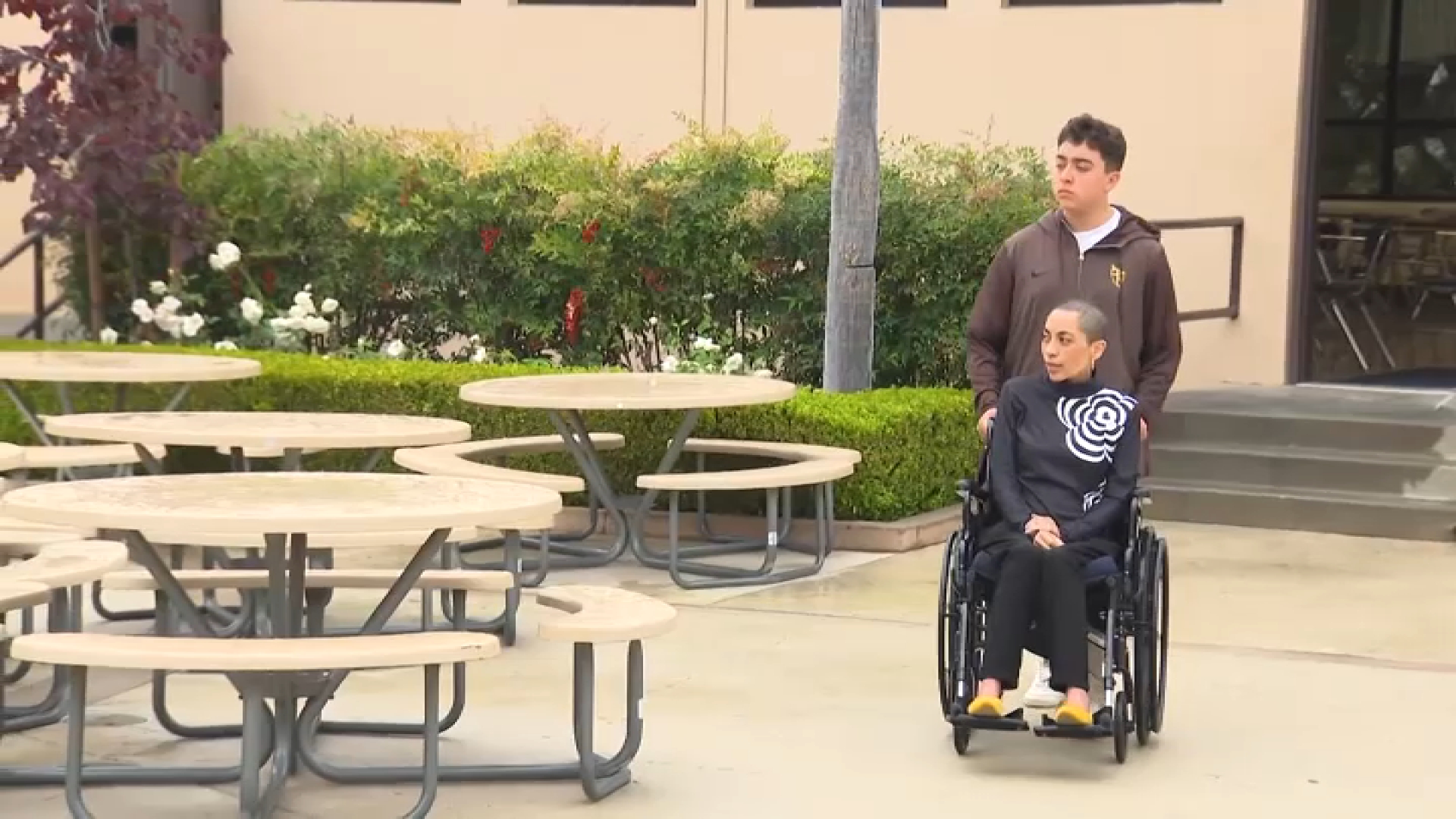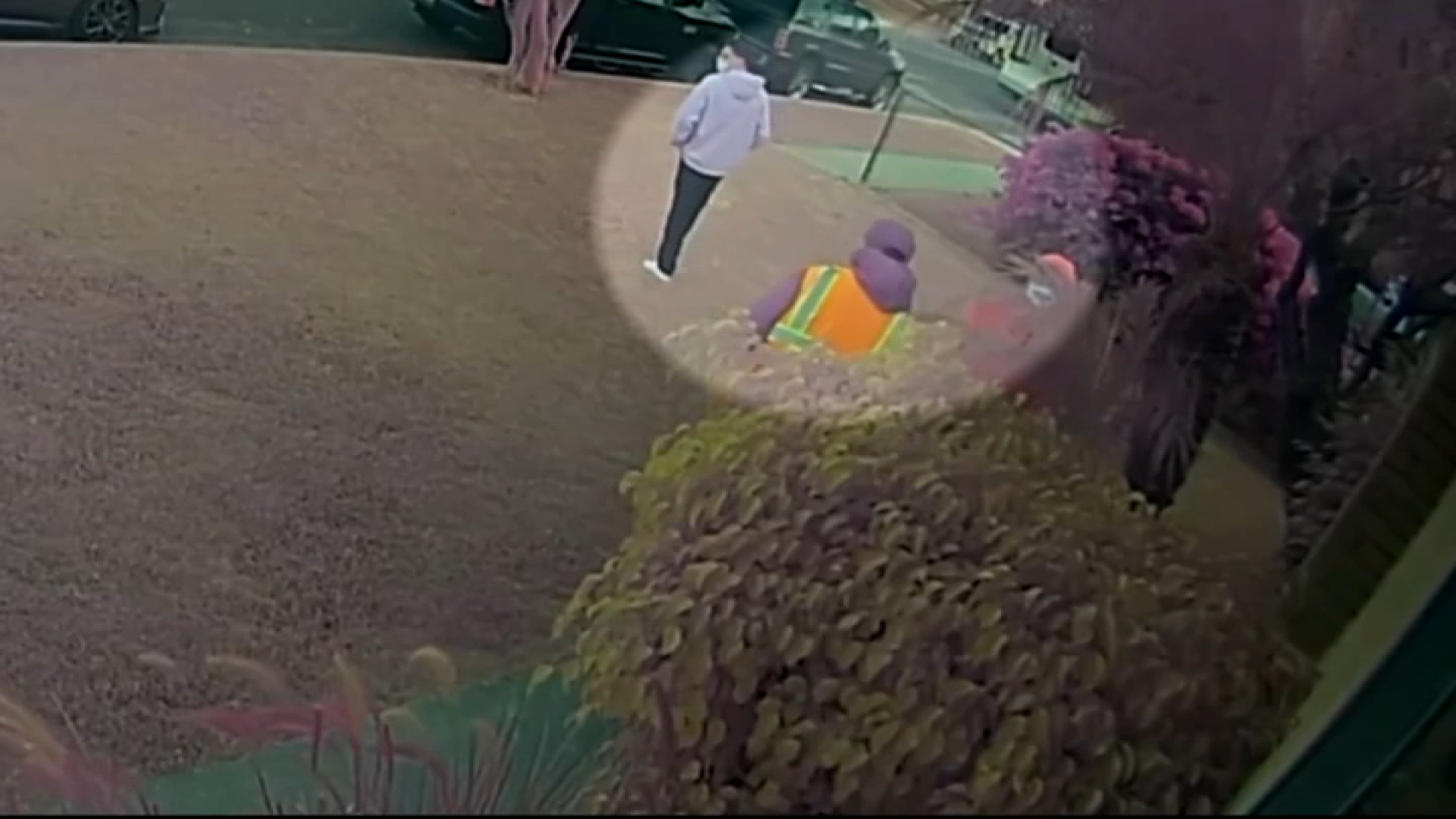The Whittier City Council voted Tuesday to move forward with an uptown redevelopment project set to remove over 80 ficus trees, which has caused passionate community outcry.
A community rally to protest the redevelopment was held ahead of the city council meeting. The council voted 3-1 to proceed with the Greenleaf Promenade project.
"Following significant public input, reports from environmental and arborist consultants, and robust deliberations over many months, the Whittier City Council voted 3-1 to move forward with the Greenleaf Promenade project, approving additional amendments to include larger replacement trees and shade structures within the three-block project area along Greenleaf Avenue," the city said in a statement.
City Councilmembers voted in December to approve the redesign of a three-block stretch from Wardman Street to Hadley Street along Greenleaf Avenue, in Whittier’s commercial center, that would consequently remove all 83 ficus trees from the block.
Get top local stories in Southern California delivered to you every morning. >Sign up for NBC LA's News Headlines newsletter.
The $20 million project, heralded as the Greenleaf Promenade, would give the city’s Uptown a modern update, transforming the area into a pedestrian-friendly space with wider sidewalks and gathering spaces.
Community outcry to the plan was immediate, with residents hosting a rally, circulating a petition, and organizing at successive city council meetings.
“The Council’s goal remains finding a balanced path forward that addresses the community’s feedback and also supports locally-owned Uptown businesses and invested property owners,” the city said in a statement in response to community concerns.
However, the Whittier community is divided over the removal of the ficus trees.
Some residents see the trees as inherent to the character of Whittier, while providing important ecosystem services like shade and carbon sequestration, a process in which trees capture and store atmospheric carbon dioxide.
Other residents are more skeptical, pointing to the fact that the non-native species clog sewer lines and lift sidewalks.
"The decision underscores the City's commitment to advancing a nearly 20-year plan for revitalization of Uptown Whittier, which began with extensive community involvement in 2006 as part of the Uptown Whittier Specific Plan process and was further refined in the 2019 Uptown Streetscape Beautification Plan," the city said in its statement after Tuesday's vote. "The $20 million dollar Promenade project will help position Uptown as a walkable, safe, and vibrant urban destination addressing critical infrastructure improvements and featuring desired amenities for the benefit of residents, visitors, and locally-owned businesses including outdoor dining, enhanced lighting and branding, and more than 57,000 sq. ft. of combined landscaping and new park space. In the coming months, staff will return to the City Council for approval of final construction documents and begin the next phase of the process."
The ficus tree debate is not unique to Whittier.
In Beverly Hills, over 50 ficus trees were removed as part of a sidewalk renovation project before a judge ordered the city to stop with a preliminary injunction. Beverly Hills is now in the process of completing an environmental impact report that will decide whether the city will move forward with the removal of the remaining 36 trees.
Pasadena city officials, too, have harbored discourse over ficus trees. In 2018, Pasadena held a community meeting to discuss whether the city should continue planting the trees.
In addition, the city of Burbank removed all of its ficus trees in 2017, citing safety concerns.
Since the approval of the Greenleaf Promenade, the Whittier City Council has hosted three study sessions, including the one Tuesday.
The last study session took place on April 30, where the City Council conceded to public pressure and proposed phasing in the project and exploring tree replacement options.
The Whittier City Council has also committed to adding 39,000 square feet of understory landscaping -- underlying layers of vegetation -- and 18,000 square feet of new park and green space to the Promenade project, according to the city statement.



